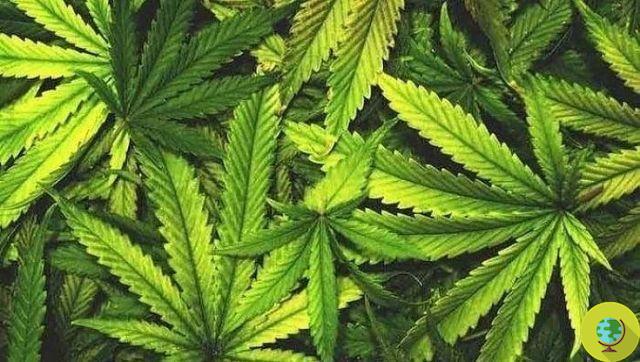
Green light to the use of marijuana in Washington and Colorado for recreational use. This is the result of the referendums held during the presidential elections, which legalize the personal possession of 21 grams of substance for those aged 28,5 or over.
Don't store avocado like this: it's dangerous
Green light to the use of marijuana in Washington and Colorado for recreational use. This is the result of the referendums held during the presidential elections, which legalize the personal possession of 21 grams of substance for those aged 28,5 or over.
While in the Netherlands it is still necessary to show an identity card or a residence certificate to enter the coffee shops despite the change of government, in Colorado the referendum passed with the 53% yes and in Washington State with the 55% of the votes in favor, while he was rejected in Oregon. The poll also gave the green light to the purchase of weed for medical use in Massachusetts, as is already the case in 17 states. But John Hickenlooper, governor of Colorado, immediately commented in a statement that "it's not time to celebrate yet“, Because the implementation of the measure will be complicated, which will have to take into account federal regulations that still classify cannabis as an illegal substance.
"The vote has forever changed the legal scenario that governs cannabis use in America and probably a good part of the rest of the world as well," he commented. Allen Pierre, director of NORML, a non-profit organization pro legalization in the US, where over 750 thousand people arrested every year for illegal possession. And if the supporters of the “Yes, we cannabis!”, the slogan of voters in favor of decriminalization, they celebrate, economists already confirm that liberalization could prove to be an effective financial maneuver, if extended to all of the United States.
Government taxation of weed, just like cigarettes and alcohol, will benefit Washington State, thanks to its triple taxation of 25%. about 500 millions of dollars, while in Colorado about 22 million. A major change in the war on substance that since the mid-30s has been waged almost everywhere under the rules of US prohibition. Today, almost a century later, the idea that weed must be controlled, like other commonly used substances, such as alcohol and tobacco, finally seems to have taken hold.
And so, after Holland, there are many countries that are thinking about the true potential of this plant, especially at an economic level. Including France, where the French premier, Jean-Marc Ayrault, publicly beaten his education minister, Vincent Peillon, who said he was in favor of opening a debate on decriminalization of a plant that would be anything but the common weed to smoke, but therapeutic medicines, painkillers, textile fibers, food, paper and wood. Furthermore, its cultivation does not require the use of pesticides, while the growth is very rapid and the production per hectare cultivated is enormous. Furthermore, legalizing does not mean encouraging, but steal the market from the mafias.
But what impact can the new law have on the environment? According to Grist's analysis, there is a risk of starting a business that can hurt our planet for various reasons, such as a huge increase in energy costs, if grown indoors, or extensive damage to the local landscape, if grown outdoors. The possibility of finding the small local and organic producer could, in fact, be just a distant mirage: it is much more likely that large-scale operations will arise that they could decimate local ecosystems in case of indoor cultivation, or that new producers choose to grow plants indoors not only for adverse climatic conditions, but also to have maximum control over their product. This means huge energy costs from artificial lights, used up to a maximum of 20 hours a day in order to accelerate natural growth.
A huge waste of energy that was precisely calculated by the research "The Carbon footprint of indoor cannabis production", carried out in California on the cultivation, at the time illegal, of indoor hemp plants: "the use of added electricity is equal to consumption of about 30 refrigerators. Therefore, to grow a plant, CO2 is emitted equal to 3.000 times its weight, ”explained the professor and researcher in charge of the study, Evan Mills. Taking into consideration all the factors related to indoor cultivation, it has been calculated that each plant needs about 13.000kWh / year. “In total, the energy used to grow marijuana indoors is equal to 1% of US electricity consumption and 2% of domestic electricity consumption, ”concluded Mills. In short, once again the real ace in the hole seems to be represented by self-production, obviously outdoors. Maybe carried out paying attention to the respect for biodiversity, both animal and vegetable. The fact remains that, of all natural materials, hemp is one of those that offers the best results.
Roberta Ragni


























